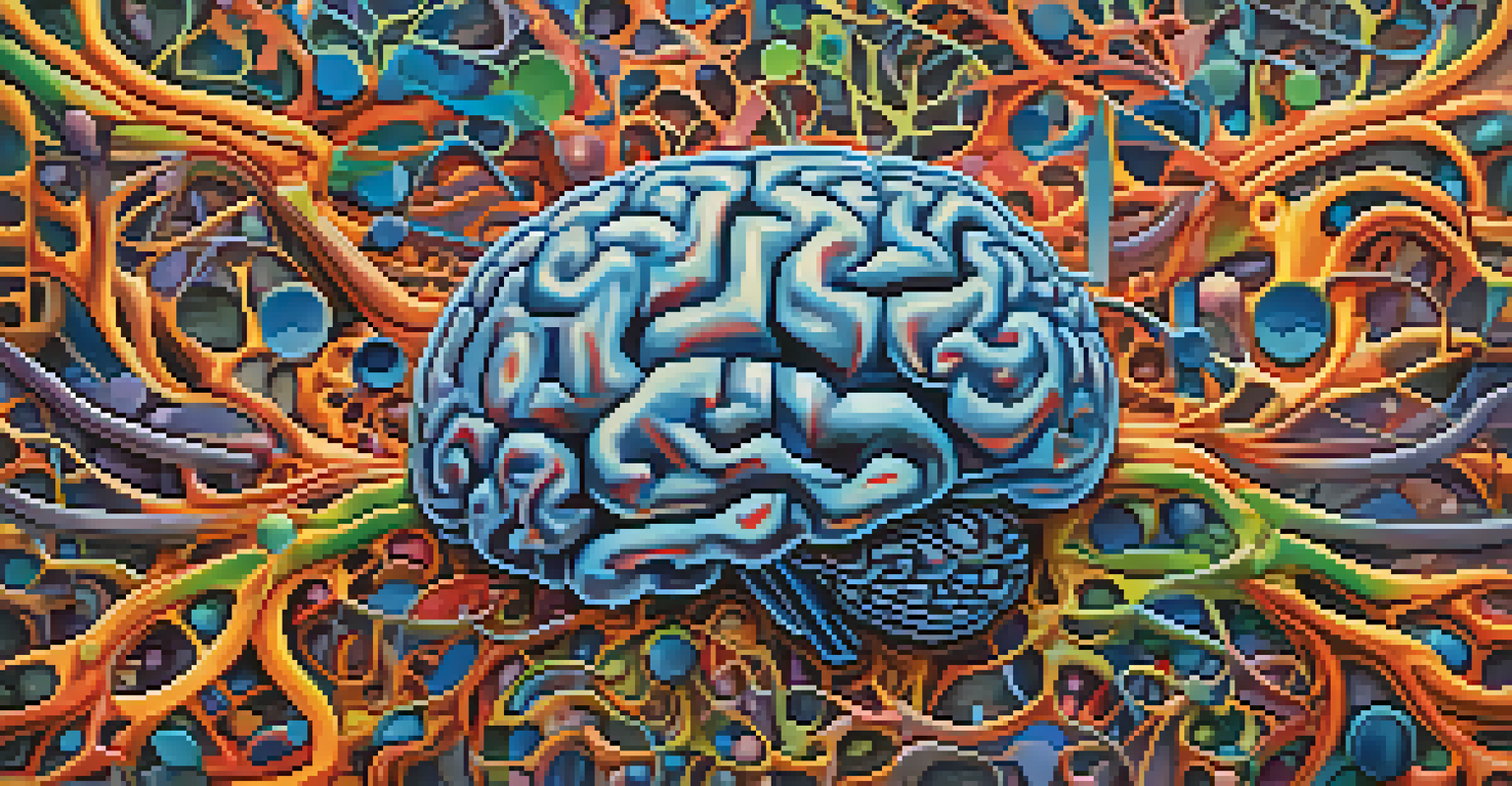Entheogens: Catalyst for Social Change in Modern Movements

Understanding Entheogens: More Than Just Substances
Entheogens are substances that induce altered states of consciousness, often used in spiritual or religious contexts. They have been a part of human culture for thousands of years, with indigenous peoples using them in rituals to connect with the divine. In modern times, these substances are gaining attention for their potential therapeutic benefits and role in social movements.
The use of entheogens as a means of fostering social change has a profound historical legacy, reminding us that transformation often begins within before it can be manifest in the world around us.
The term 'entheogen' itself derives from Greek roots meaning 'generating the divine within.' This highlights the spiritual aspect often associated with these substances, setting them apart from recreational drugs. As society becomes more open to exploring altered states of consciousness, the conversation surrounding entheogens is evolving.
Understanding entheogens is crucial to appreciating their potential impact on social change. By recognizing their historical significance and the spiritual connection many seek, we can better grasp how they might inspire contemporary movements aimed at promoting healing, awareness, and social justice.
Historical Context: Entheogens in Social Movements
Throughout history, entheogens have played a pivotal role in various social movements. For example, during the 1960s, many activists turned to psychedelics as a means of expanding consciousness and questioning societal norms. This era saw a surge in countercultural movements advocating for peace, civil rights, and environmental awareness.

Not only did these substances encourage personal exploration, but they also fostered a sense of community among those who sought change. Shared experiences under the influence of entheogens often led to collective action, uniting individuals towards a common cause. This interconnectedness is vital in understanding how entheogens can catalyze social transformations.
Historical Role in Social Movements
Entheogens have historically catalyzed social movements by fostering community and collective action.
By examining historical precedents, we can see how entheogens have influenced societal shifts. They serve as a reminder that the quest for social change often involves not just external actions, but also internal shifts in perception and understanding.
Entheogens and Personal Transformation: A Gateway to Change
Engaging with entheogens can lead to profound personal transformation, which is often the first step towards broader social change. Many users report insights about themselves and their place in the world, fostering a sense of empathy and connection to others. This personal growth can ignite a passion for social activism and community involvement.
Psychedelics, when used responsibly, can catalyze healing and awareness, paving the way for personal and collective transformation.
For instance, individuals who experience feelings of unity and interconnectedness during entheogenic experiences may be more inclined to advocate for social justice. The realization that one’s actions affect the greater whole can motivate people to pursue change not just for themselves, but for society as a whole.
The journey of personal transformation is crucial for effective activism. When individuals feel a deeper connection to their community and the world, they are often more driven to contribute positively to societal issues, creating a ripple effect of change.
Modern Movements: Entheogens in Action
Today, numerous modern movements integrate entheogens into their practices as a tool for social change. From mental health advocacy to environmental sustainability initiatives, these substances are being explored for their potential to inspire action. Organizations are beginning to recognize the therapeutic benefits of psychedelics for mental health, which can empower individuals to engage more meaningfully with social issues.
For example, some groups are using guided entheogenic experiences to foster community healing and resilience, particularly in marginalized communities. These safe spaces allow participants to confront personal and collective trauma, equipping them with the emotional tools to advocate for change. It's a powerful reminder that healing often precedes action.
Entheogens Foster Personal Growth
Engaging with entheogens can lead to profound personal transformation, igniting passion for social activism.
By incorporating entheogens into their frameworks, modern movements are not only addressing personal well-being but also laying the groundwork for systemic change. This intersection of personal and societal transformation is a promising avenue for future activism.
The Science Behind Entheogens: A Growing Field of Study
As interest in entheogens grows, so does scientific research exploring their effects on the brain and behavior. Studies have shown that substances like psilocybin and ayahuasca can promote neuroplasticity, leading to lasting changes in thought patterns and emotional responses. This scientific backing lends credibility to the use of entheogens in therapeutic and social contexts.
Research indicates that entheogens may help individuals confront and process trauma, which is crucial in social movements focused on justice and healing. Understanding the psychological mechanisms at play can help activists harness these substances responsibly, ensuring that their use is safe and beneficial.
The growing body of research invites a dialogue between science and spirituality, allowing for a more nuanced understanding of how entheogens can facilitate personal and societal transformation. This intersection opens doors for further exploration into their potential as catalysts for social change.
Challenges and Controversies Surrounding Entheogens
Despite their potential, the use of entheogens is not without controversy. Legal restrictions and societal stigma continue to pose challenges for those advocating for their responsible use. Many people still associate these substances with the counterculture movements of the past, leading to misunderstandings about their benefits and purposes.
Moreover, there's an ongoing debate about the commercialization of entheogens and whether it undermines their spiritual and communal significance. As more people seek therapeutic experiences, it's essential to navigate these waters carefully, ensuring that practices remain grounded in respect and ethical considerations.
Scientific Support for Therapeutic Use
Research shows that entheogens can promote neuroplasticity and help individuals process trauma, enhancing their impact on social change.
Addressing these challenges is crucial for the future of entheogens in social movements. By fostering an environment of education, respect, and open dialogue, advocates can work towards a more inclusive and understanding approach to these powerful substances.
The Future of Entheogens in Social Change Movements
Looking ahead, the role of entheogens in social change appears promising. As more people advocate for mental health awareness and social justice, the integration of these substances into activism may become more mainstream. This shift could lead to a deeper understanding of the interconnectedness of personal healing and societal transformation.
Furthermore, ongoing research and dialogue surrounding entheogens will likely influence public perception and policy changes. As society becomes more educated about their benefits, we may see a gradual move towards decriminalization and acceptance, opening new avenues for their use in collective healing efforts.

Ultimately, the future of entheogens in social movements hinges on a balance between responsible use, scientific understanding, and respect for their historical and cultural significance. This holistic approach could help shape a more compassionate and just society.